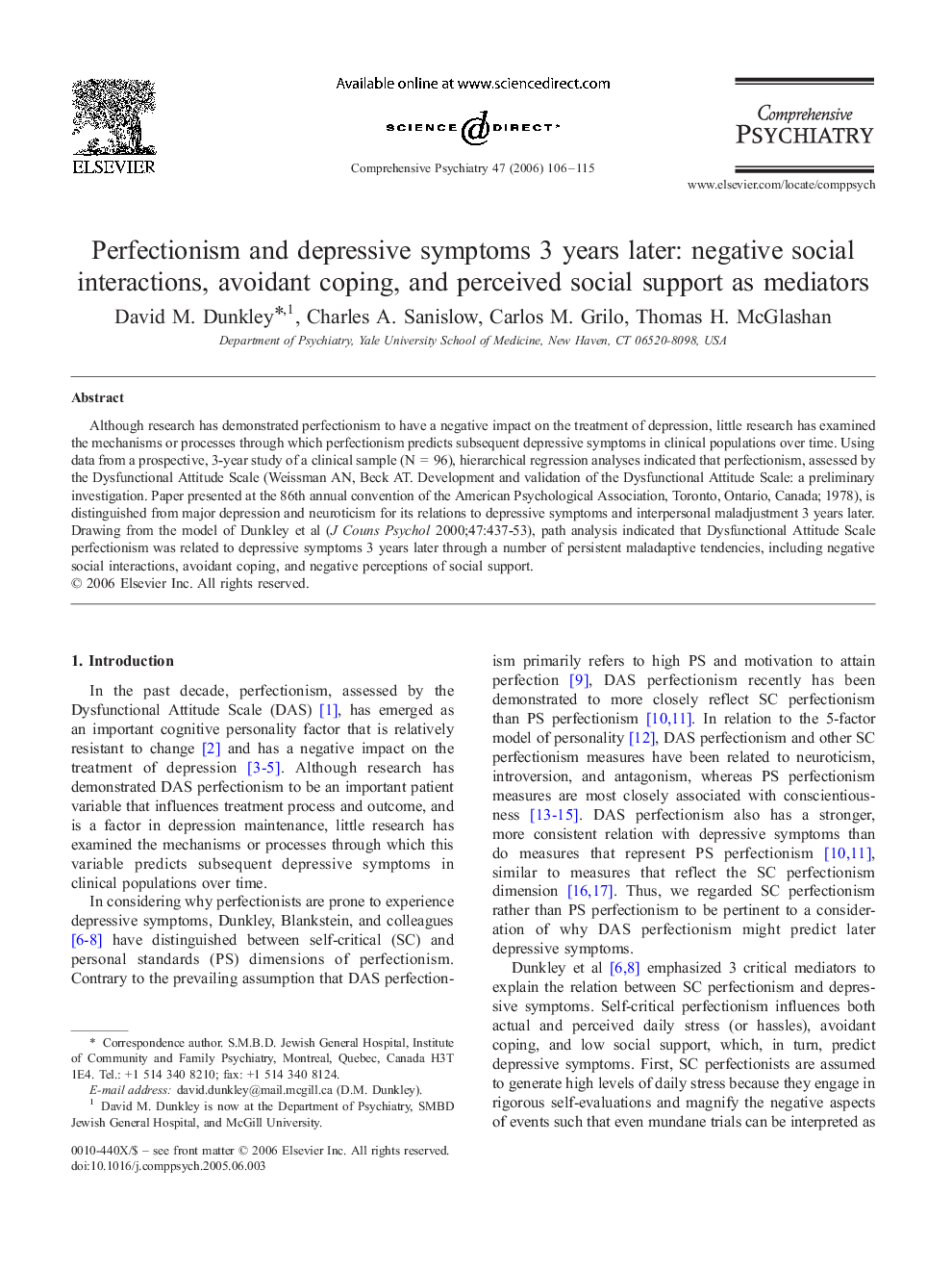| Article ID | Journal | Published Year | Pages | File Type |
|---|---|---|---|---|
| 316867 | Comprehensive Psychiatry | 2006 | 10 Pages |
Although research has demonstrated perfectionism to have a negative impact on the treatment of depression, little research has examined the mechanisms or processes through which perfectionism predicts subsequent depressive symptoms in clinical populations over time. Using data from a prospective, 3-year study of a clinical sample (N = 96), hierarchical regression analyses indicated that perfectionism, assessed by the Dysfunctional Attitude Scale (Weissman AN, Beck AT. Development and validation of the Dysfunctional Attitude Scale: a preliminary investigation. Paper presented at the 86th annual convention of the American Psychological Association, Toronto, Ontario, Canada; 1978), is distinguished from major depression and neuroticism for its relations to depressive symptoms and interpersonal maladjustment 3 years later. Drawing from the model of Dunkley et al (J Couns Psychol 2000;47:437-53), path analysis indicated that Dysfunctional Attitude Scale perfectionism was related to depressive symptoms 3 years later through a number of persistent maladaptive tendencies, including negative social interactions, avoidant coping, and negative perceptions of social support.
